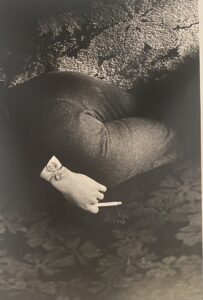Ralph Gibson (b. 1939, Los Angeles, California) is an iconic American photographer renowned for his signature high-contrast black-and-white images, often imbued with surreal, erotic, and symbolic undertones. With a career spanning over six decades, Gibson has forged a distinct visual language that blends mystery, abstraction, and narrative minimalism, pushing the boundaries of fine art photography.
A former assistant to both Dorthea Lange and Robert Frank, Gibson developed an independent artistic voice that focuses less on documentary realism and more on psychological intensity and subjective perception. His work often explores themes such as the female form, urban architecture, literature, and the fragmentation of reality. Gibson’s powerful use of light and shadow transforms ordinary objects and human figures into evocative, enigmatic compositions.
In 1970, he founded Lustrum Press, an independent publishing house that played a major role in redefining the photobook as a form of artistic expression. His seminal trilogy—The Somnambulist (1970), Déjà-vu (1973), and Days at Sea (1974)—cemented his place as a leading figure in conceptual and fine art photography. Gibson’s photobooks are central to his practice, with over 40 titles published to date, each exploring photography as a form of visual poetry.
His photographs are included in the permanent collections of prestigious institutions such as the Museum of Modern Art (MoMA) in New York, the Whitney Museum of American Art, the Los Angeles County Museum of Art (LACMA), and the International Center of Photography (ICP). He has exhibited extensively worldwide, including solo exhibitions in Europe, Asia, and the Americas.
Gibson is a recipient of numerous awards, including the Lucie Award for Lifetime Achievement and the French Legion of Honor for his contribution to the arts. He continues to create and experiment, now incorporating digital photography and music composition into his evolving practice.

untitled